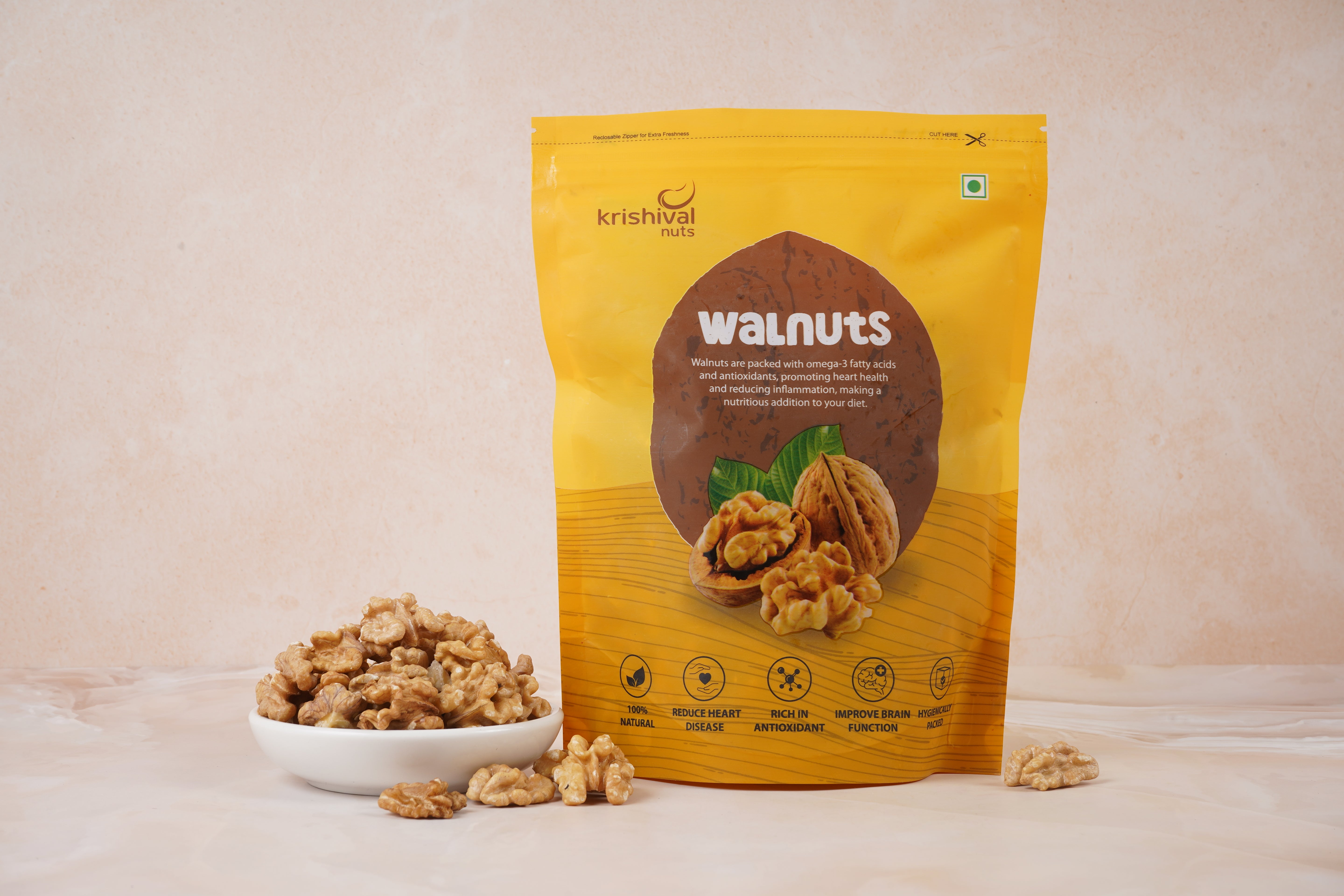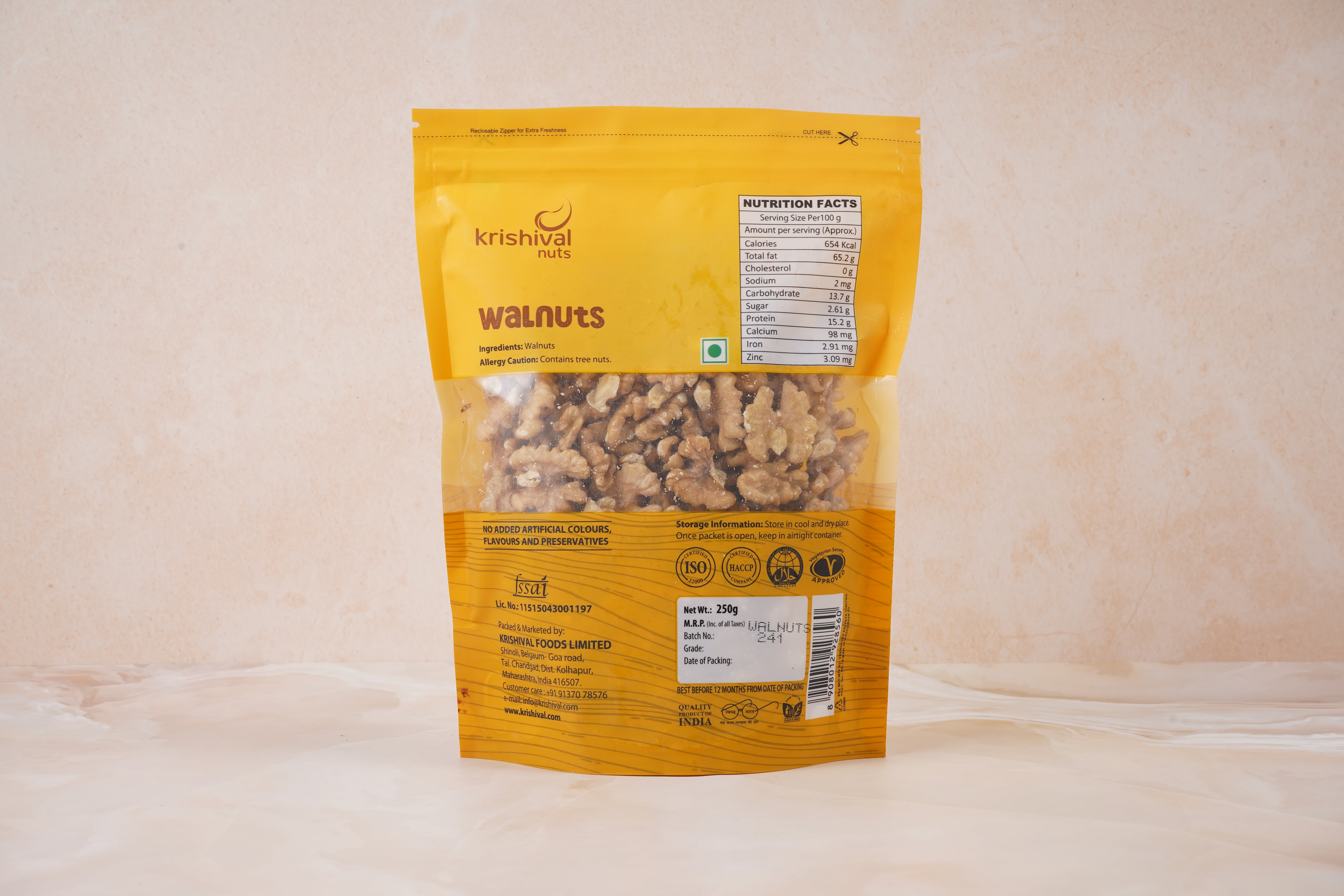Hazelnuts and walnuts, two of the most commonly consumed tree nuts, are not only delicious but also packed with nutrients that can significantly improve gut health and digestion. These nuts are rich in healthy fats, fiber, and antioxidants, all of which contribute to maintaining a balanced and healthy digestive system. Hazelnuts, with their sweet, earthy flavor, and walnuts, known for their slightly bitter taste, both offer unique health benefits. When included in your diet, hazelnuts and walnuts can help promote the growth of beneficial gut bacteria, support regular bowel movements, and improve overall digestive function. Whether eaten as a snack, added to salads, or incorporated into meals, these nutrient-dense nuts are a powerhouse for digestive wellness. In this blog, we will explore how these nuts can enhance gut health, provide essential nutrients, and support digestive wellness. We’ll delve into their nutritional profiles, their impact on digestion, and practical tips for including them in your daily diet.
Table of Contents
- Introduction
- What Makes Hazelnuts and Walnuts Beneficial for Gut Health?
- The Nutritional Profile of Hazelnuts and Walnuts
- How Hazelnuts and Walnuts Improve Digestion
- The Role of Omega-3 Fatty Acids in Gut Health
- Antioxidants in Hazelnuts and Walnuts and Their Impact on Digestion
- How Regular Consumption of Hazelnuts and Walnuts Supports Gut Health
- Possible Side Effects and Precautions
- How to Incorporate Hazelnuts and Walnuts into Your Diet
- Conclusion
- Frequently Asked Questions (FAQs)
What Makes Hazelnuts and Walnuts Beneficial for Gut Health?
Hazelnuts and walnuts are two nuts that offer numerous benefits for gut health due to their rich nutrient content, particularly fiber, healthy fats, and antioxidants. Their high fiber content plays a key role in supporting digestive health by promoting regular bowel movements and preventing constipation. In addition, both nuts contain monounsaturated fats and omega-3 fatty acids, which have been shown to help reduce inflammation in the digestive tract, contributing to improved gut health. Moreover, these nuts have a prebiotic effect, which means they help nourish the beneficial bacteria in the gut, further promoting a balanced microbiome.
The Nutritional Profile of Hazelnuts and Walnuts
Both hazelnuts and walnuts are highly nutritious, offering a wide array of essential vitamins, minerals, and healthy fats. Below is a look at their nutritional content:
Key Nutrients in Hazelnuts
Hazelnuts are rich in vitamin E, magnesium, folate, and fiber. A 1-ounce serving (about 28g) of hazelnuts contains:
-
Calories: 178
-
Total Fat: 17g (of which 13g are healthy monounsaturated fats)
-
Protein: 4g
-
Fiber: 3g
-
Vitamin E: 21% of the daily recommended intake
-
Magnesium: 12% of the daily recommended intake
The high fiber content of hazelnuts helps improve digestion by promoting regular bowel movements. The monounsaturated fats support heart health and reduce inflammation, which can have a positive impact on gut health.
Key Nutrients in Walnuts
Walnuts are particularly known for their high content of omega-3 fatty acids and antioxidants. A 1-ounce serving (28g) of walnuts contains:
-
Calories: 185
-
Total Fat: 18g (of which 13g are polyunsaturated fats, including omega-3s)
-
Protein: 4g
-
Fiber: 2g
-
Vitamin E: 2% of the daily recommended intake
-
Magnesium: 11% of the daily recommended intake
Walnuts are an excellent source of alpha-linolenic acid (ALA), a plant-based omega-3 fatty acid, which has been shown to have anti-inflammatory effects and support the health of the digestive system.
How Hazelnuts and Walnuts Improve Digestion
Hazelnuts and walnuts are both rich in fiber, which plays a key role in digestion. Fiber helps add bulk to stool, making it easier to pass through the intestines and reducing the risk of constipation. The fiber in these nuts also feeds beneficial bacteria in the gut, promoting the growth of a healthy microbiome, which is essential for proper digestion.
Furthermore, healthy fats in both hazelnuts and walnuts help maintain the integrity of the intestinal lining. Omega-3 fatty acids, in particular, have anti-inflammatory properties that can soothe the digestive tract and help reduce symptoms of inflammatory bowel diseases (IBD) like Crohn’s disease and ulcerative colitis.
The Role of Omega-3 Fatty Acids in Gut Health
Omega-3 fatty acids, particularly alpha-linolenic acid (ALA) found in walnuts, are essential for maintaining a healthy gut. These fatty acids help reduce inflammation in the digestive tract, which can promote better digestion and alleviate symptoms of inflammatory bowel diseases (IBD) and other gut-related issues. Omega-3s have also been shown to improve the gut’s mucosal lining, making it more resistant to harmful pathogens and promoting better absorption of nutrients.
In addition, omega-3 fatty acids in walnuts have been linked to improved gut microbiota diversity. Studies have shown that these essential fats can encourage the growth of beneficial gut bacteria, which in turn supports the overall health of the digestive system.
Antioxidants in Hazelnuts and Walnuts and Their Impact on Digestion
Both hazelnuts and walnuts are rich in antioxidants, such as vitamin E and polyphenols, that help protect the digestive system from oxidative stress and inflammation. The high levels of vitamin E in hazelnuts act as a powerful antioxidant, protecting cells from free radical damage. This helps reduce inflammation in the gut, promoting better digestion and overall gut health.
In walnuts, the polyphenols and ellagic acid found in the nuts have been shown to have anti-inflammatory and antioxidant effects. These compounds help reduce oxidative damage in the gut and promote a healthy microbiome, which is crucial for efficient digestion.
How Regular Consumption of Hazelnuts and Walnuts Supports Gut Health
Regular consumption of hazelnuts and walnuts can support gut health in several ways. Their fiber content helps promote regular bowel movements, while the healthy fats help maintain a healthy intestinal lining. Additionally, the antioxidants in these nuts help reduce inflammation and protect against gut damage caused by oxidative stress.
Incorporating these nuts into your diet on a regular basis can help improve digestion, reduce the risk of digestive disorders, and support overall gut health. Aim to consume a small handful (about 1 ounce) of hazelnuts or walnuts daily for the best results.
Possible Side Effects and Precautions
While hazelnuts and walnuts offer many health benefits, they should be consumed in moderation. Since they are calorie-dense, eating too many can contribute to excessive calorie intake and potentially lead to weight gain. Additionally, nuts can be an allergen for some individuals. If you have a nut allergy, it’s best to avoid these nuts or consult with a healthcare provider before incorporating them into your diet.
Some people may also experience digestive discomfort when consuming nuts, especially in large quantities. To avoid any potential issues, start with small amounts and gradually increase your intake.
How to Incorporate Hazelnuts and Walnuts into Your Diet
There are plenty of creative ways to incorporate hazelnuts and walnuts into your diet to reap their digestive benefits:
-
As a snack: Enjoy a small handful of hazelnuts or walnuts on their own for a quick and nutritious snack.
-
In salads: Add chopped hazelnuts or walnuts to your salads for extra crunch and nutritional value.
-
In smoothies: Blend walnuts or hazelnuts into your smoothies for added protein and healthy fats.
-
In baked goods: Include these nuts in cookies, muffins, or cakes to enhance flavor and provide health benefits.
-
In oatmeal or yogurt: Top your morning oatmeal or yogurt with a handful of walnuts or hazelnuts for a boost of energy and fiber.
These nuts can easily be added to a variety of dishes, making them a versatile and healthful addition to your daily meals.
Conclusion
Hazelnuts and walnuts are more than just delicious snacks—they are powerful allies in promoting gut health and improving digestion. Their high fiber content helps support regular bowel movements, while their healthy fats, antioxidants, and omega-3 fatty acids contribute to better overall digestive function. Incorporating these nutrient-rich nuts into your diet on a regular basis can help maintain a balanced gut microbiome, reduce inflammation, and promote better digestion. If you're looking to enhance your gut health, adding hazelnuts and walnuts to your daily routine is a simple yet effective way to achieve optimal digestive wellness.
At Krishival, we offer premium-quality hazelnuts and walnuts that are perfect for improving your gut health. Whether you snack on them directly or incorporate them into your recipes, our fresh, nutrient-packed nuts will help you achieve your health goals.
Frequently Asked Questions (FAQs)
-
Can hazelnuts improve gut health?
Yes, hazelnuts are rich in fiber, which promotes regular bowel movements and supports overall gut health. They also contain antioxidants that help reduce inflammation in the digestive system.
-
Do walnuts help with digestion?
Yes, walnuts help with digestion by providing fiber that adds bulk to stool and promotes smooth bowel movements. The omega-3 fatty acids in walnuts also have anti-inflammatory properties that support gut health.
-
How do omega-3 fatty acids improve gut health?
Omega-3 fatty acids, found in walnuts, help reduce inflammation in the gut, improve the intestinal lining, and support the growth of beneficial gut bacteria, all of which contribute to better digestion.
-
What fiber content do hazelnuts and walnuts provide?
Hazelnuts provide about 3 grams of fiber per ounce, while walnuts provide 2 grams per ounce. Fiber plays a crucial role in improving digestion and maintaining a healthy gut.
-
How do walnuts affect gut microbiota?
Walnuts help promote the growth of beneficial gut bacteria, supporting a healthy microbiome. Their omega-3 fatty acids and antioxidants encourage microbial diversity, which is key for efficient digestion.
-
Are there any side effects of eating too many walnuts or hazelnuts?
Eating too many walnuts or hazelnuts can lead to excess calorie intake and may cause digestive discomfort. It’s important to consume them in moderation, typically about 1 ounce per day.
-
How can I add walnuts and hazelnuts to my daily diet?
You can incorporate walnuts and hazelnuts into your diet by snacking on them, adding them to salads, baking them into cookies or muffins, blending them into smoothies, or sprinkling them on yogurt or oatmeal.
-
Can hazelnuts and walnuts help with bloating?
The fiber in hazelnuts and walnuts can help reduce bloating by promoting regular bowel movements and preventing constipation, which is a common cause of bloating.
-
Are walnuts better than hazelnuts for digestion?
Both walnuts and hazelnuts are beneficial for digestion due to their fiber content. However, walnuts provide additional benefits from their omega-3 fatty acids, which have anti-inflammatory properties that further support gut health.
-
How much of walnuts and hazelnuts should I eat per day for gut health?
A serving size of 1 ounce (about 28g) of walnuts or hazelnuts per day is ideal for supporting gut health. This amount provides sufficient fiber, healthy fats, and antioxidants without excessive calorie intake.









